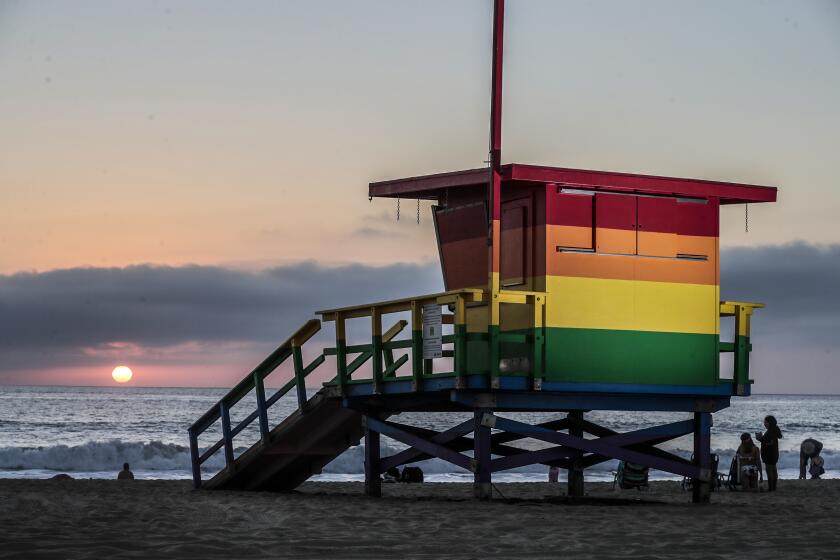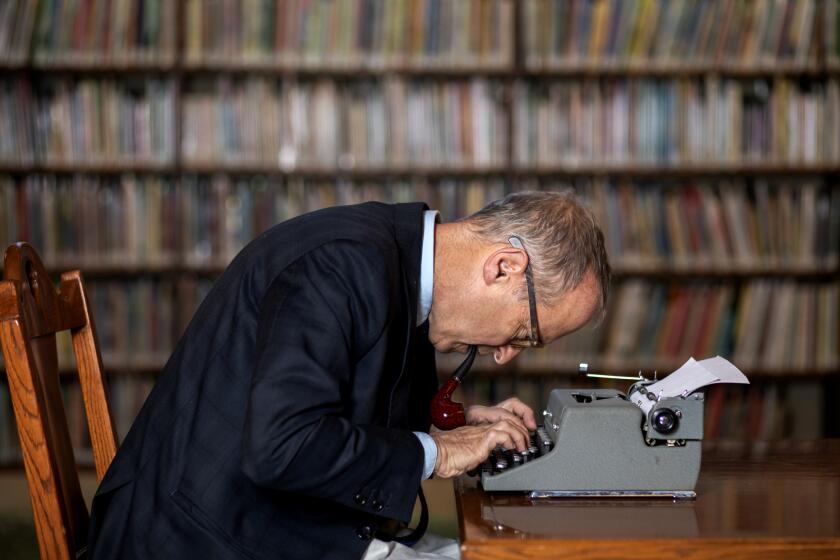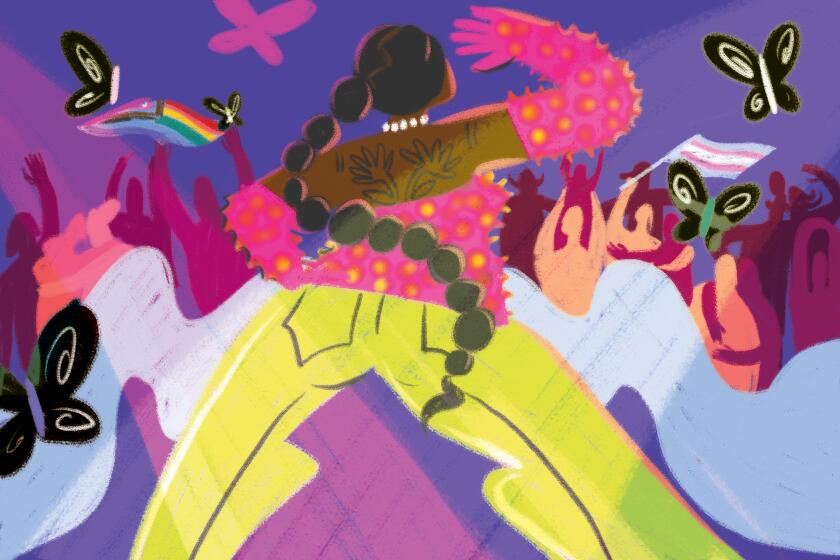‘Bad Gays’ and the two podcasters who love them
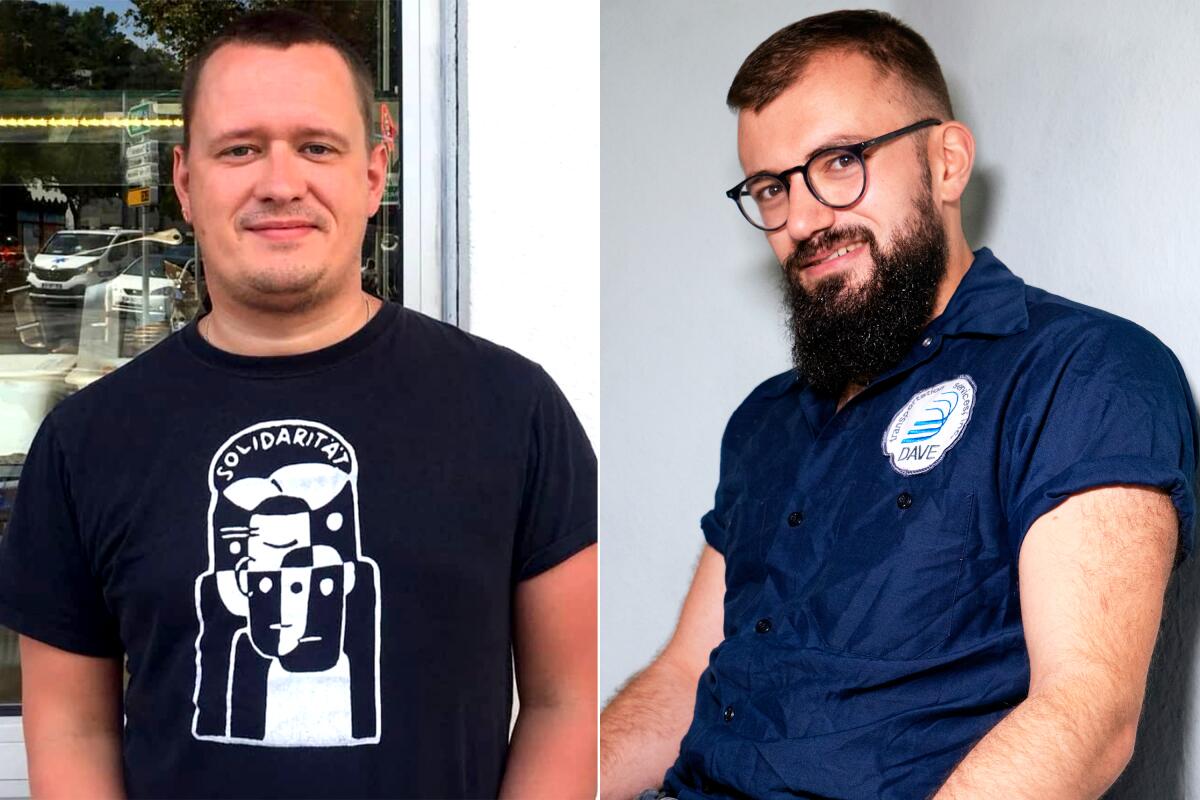
On the Shelf
Bad Gays: A Homosexual History
By Huw Lemmey and Ben Miller
Verso: 368 pages, $30
If you buy books linked on our site, The Times may earn a commission from Bookshop.org, whose fees support independent bookstores.
Even before Huw Lemmey and Ben Miller met, they were on the same page. Both men have an abiding interest in queer history — Miller as an academic and Lemmey as a writer of essays and novels. But they found that the kinds of topics they wanted to talk about, the “beyond 101,” as Miller puts it now, often sounded intimidating to editors and other gatekeepers.
“We kept being told, ‘There is no audience for this; people aren’t ready,’” Miller explained during a recent Zoom call. So when the pair were introduced by a mutual friend, they decided to go rogue and DIY a podcast called “Bad Gays,” aimed at discussing and dissecting the lives of “evil and complicated queer people in history” as a means of exploring modern queer identity. Neither had any audio experience, but that didn’t matter, they figured. Who was going to be listening, anyway?
As it turned out, many, many people. In late May of this year, the podcast crossed the million-download mark, and Miller and Lemmey published a companion book of the same title. “Bad Gays: A Homosexual History” offers biographical sketches of 14 men, ranging from the Roman emperor Hadrian to J. Edgar Hoover; taken together they explain, as Miller puts it, “how the white gay man happened as an identity figure, and why that was a mistake, and what we should do instead.”
Why did framing the podcast around, as you sometimes say, “queer villains” feel like the right project for you?
Miller: The point of the show is to ask: What do we learn about ourselves by looking at the stories of people we are less comfortable identifying with? It’s not that we’re trying to make a line in the sand between bad gays and not-bad gays. But the more we make ourselves and our listeners uncomfortable, the better the work is.
Lemmey: You immediately start from a position that recognizes complexity. A lot of the people we feature, there’s very few who are out-and-out terrible people. But because we started from this position, we can complicate the stories we want to tell about queerness.
Our regularly updating 2022 Pride guide to culture will feature novels and memoirs from LGBTQ icons, must-see TV series, music, movies and much more.
A thing that comes up a lot in both the book and the podcast is that sexuality isn’t an inherent identity category. The concept of homosexuality had to be invented, and it’s a relatively modern invention.
Miller: Both heterosexuality and homosexuality, as we understand them, are this idea that you go out into the world in search of some kind of sexual and/or romantic partner, and that you engage with people in public and private places, and eventually some kind of couple-bond forms. [But] he whole idea of heterosexual dating is invented in the 1920s, when all of a sudden there’s a consumer market for young people. This stuff has a very specific history!
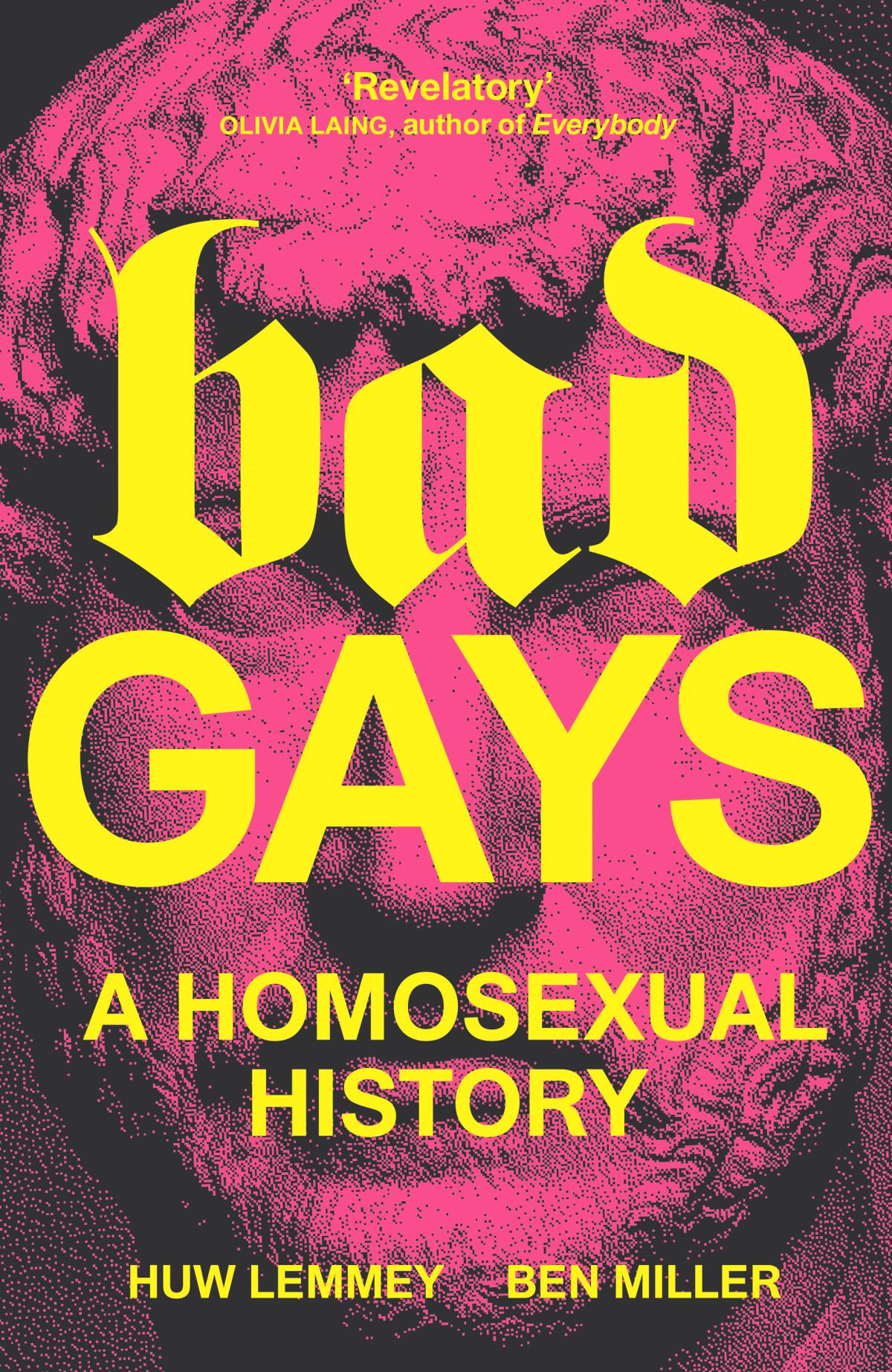
Lemmey: It’s very easy to assume that, after a few generations, they are natural. That’s the main conversation of the book — to look for the historical basis, because within that historical basis there’s a challenge to the idea of these forms being natural. And if they aren’t natural then we can rethink what forms we might want.
So you’re having conversations about people who wouldn’t have identified as gay or lesbian or queer. And we sometimes know something about their sex lives, but we don’t have much evidence. How do you talk around that in a show called “Bad Gays”?
Lemmey: We’re constantly saying: This is our conclusion, but we’re showing our workings; you might come to a different conclusion. There’s the discussion of whether you can label someone who was born before the 1860s as a homosexual in the first place. What does that mean? King James — was he having sex with these men? He was clearly writing in this romantic form about them, but does that mean he was having sex with them? It’s an open discussion we have.
Do you have any favorite stories in the book?
Miller: There’s so much public conversation about the rise of the new right across the West. I think the fact that the person who led that was not only openly gay— Pim Fortuyn in the Netherlands, in 2002 — he was so gay that during the election campaign he gave a TV interview in which he talked about how good [semen] tastes.
Discussing touring, Twitter and his bittersweet new book, “Happy-Go-Lucky,” legendary comic writer David Sedaris defends his right to cause offense.
I think there is a tendency to equate queerness with radical ideas. But a big theme in the book is looking at how queer people have assimilated themselves into the dominant culture. Why was that important to you?
Miller: Only by understanding how history works do we understand how to work within the world we’ve been given to change the world we’ve been given.
Lemmey: The study of history in this way removes the figure of the queer person as inherently radical, and probably inherently nice, in some way — which is not just ahistorical but an observable falsehood to anyone who hangs out in a gay bar. It can be very helpful in undermining the use of homosexuality as a fig leaf to pinkwash reactionary political projects — and racist and colonialist political projects as well.
It’s Pride Month. What’s your relationship to Pride as a phenomenon, historically and currently?
Lemmey: I love and hate Pride. It can be a really amazing place to discover yourself inside your city. It’s become corporatized and now is a vehicle for some of the most reactionary forces — if you’ve been to Pride in London it’s, like, arms manufacturers and the police — but I think it’s a territory still worth struggling for.
A lot of people say, “Oh, it’s just been turned into a party; it should be a protest.” I think from the earliest days it was both, and one of the things that’s amazing about it is that to party in that way, visibly on the streets, is itself a political action. The personal is political, to coin a phrase.
The book is mostly focused on history, but you do promise to discuss what we should do next. What kinds of queer futures do you imagine?
Miller: We talk about times and places when solidarity has broken out and think about what it would mean to do that in the present. There’s moments like the history of the Marine Cooks and Stewards Union in the Pacific in the 1930s. The union was communist and explicitly anti-racist and explicitly pro-gay; their slogan was, “When they try to get one of us, they get all of us.” They also participated in some enormous general strikes in California in the 1930s that were a really important part of why the New Deal happened: fear of labor action like this one.
Los Angeles has pride parades, pride proms, pride concerts and pride comedy shows planned throughout June.
Lemmey: One of the things I think the book brings out is that the value of your liberation can go down as well as up, so to speak. The story we have been told of the slow, gradual unfolding of rights in a Western democratic liberal framework is simply false. They can go backwards as quickly as they can go forward, so a politics that demands integration and doesn’t pay attention to those dangers is one that’s potentially lethal to all LGBTQ people, but especially trans people, and that’s what we’re going through in the current moment.
By the same token, in what can seem like a dull, gray, repressive situation — a place like New York in the 1960s, where gay people had been struggling for generations — Stonewall can happen. A revolutionary change can emerge out of the night and sweep things into a new dimension.
More to Read
Sign up for our Book Club newsletter
Get the latest news, events and more from the Los Angeles Times Book Club, and help us get L.A. reading and talking.
You may occasionally receive promotional content from the Los Angeles Times.
